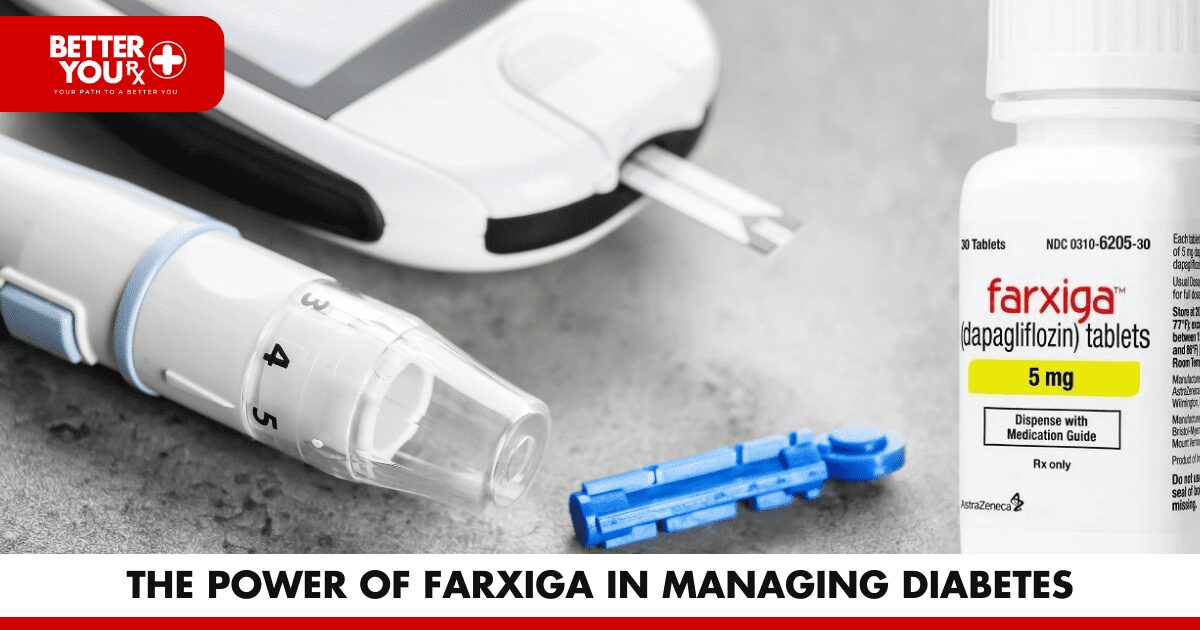The article discusses the medication Farxiga, also known as Dapagliflozin Propanediol Monohydrate, which is used in conjunction with diet and exercise to lower blood sugar levels in patients with type 2 diabetes. It falls under the class of medications called sodium-glucose co-transporter 2 (SGLT2) inhibitors. This medication works by causing the kidneys to excrete more glucose through urine. It’s not meant for treating type 1 diabetes or diabetic ketoacidosis. Managing diabetes involves taking Dapagliflozin, making lifestyle changes, and regularly monitoring blood sugar levels. This therapy could potentially reduce the risk of complications such as heart disease, stroke, kidney problems, nerve damage, and eye issues.
Instructions for Use:
- Dapagliflozin is taken as a tablet orally, usually once a day in the morning, with or without food.
- Patients should adhere to the prescribed dosage and timing, even if they feel well.
- Dosage adjustments may be made by the doctor based on the patient’s response.
Special Precautions:
- Prior to taking Dapagliflozin, patients should inform their healthcare providers about allergies to the medication or any ingredients, current medications (including non-prescription drugs and supplements), medical history, kidney health, alcohol consumption, and other conditions.
- It’s important to notify the doctor if pregnant, planning pregnancy, or breastfeeding.
- Patients with certain medical conditions or undergoing surgery should consult their healthcare provider.
- Alcohol consumption may affect blood sugar levels.
- Patients should be cautious of getting up quickly from lying down as Dapagliflozin can cause dizziness.
Special Dietary Recommendations:
- Patients should follow their doctor’s advice on diet and exercise while on Dapagliflozin.
- Adequate fluid intake is important.
Missed Dose:
- If a dose is missed, it should be taken as soon as remembered, unless the next dose is closed.
- Doubling doses is not recommended.
Side Effects:
- Dapagliflozin might lead to changes in blood sugar. Patients should recognize symptoms of high and low blood sugar and know appropriate actions.
- Common side effects include increased urination and thirst.
- Severe symptoms require medical attention, such as pain during urination, changes in urine color, swelling, weakness, and various genital symptoms.
Overdose and Additional Details:
- In case of overdose, contact poison control or emergency services.
- Patients should attend appointments, undergo necessary lab tests, and maintain a record of medications.
- Wearing a diabetic identification bracelet is advised.
- Patients should not share their medication and should keep an updated list of all medications and supplements.
- This information is important to carry in case of emergencies.
Discover the potential to safeguard your heart, kidneys, and overall well-being while keeping high blood sugar at bay. With its straightforward usage instructions and the guidance of healthcare experts, integrating Farxiga into your routine is a step toward a brighter, healthier future.
Ready to take the next step? Embrace the power of Farxiga and let Better You Rx pharmacy be your partner on this transformative journey. Experience the vitality that comes from effective diabetes management. Choose Farxiga and choose a healthier you.



